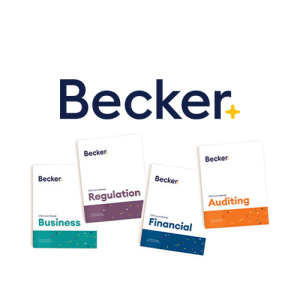
Another thing I found is that similar questions are frequently bunched together, so instead of doing the first 25% of questions, I’d simply do 1, skip 4, do 1, skip 4, etc. If there was a topic that I was really struggling with because I knew nothing about it (I’m talking to you, governmental accounting!) I’d do anywhere from 1/2 to 3/4 of the problems. Depending on the topic, I’d do about 1/3 to 1/4 of the problems because so many questions test the exact same concept in very similar ways. MCQs: this is where a lot of study time is usually wasted.The problems were helpful so I continued to do those. Skills practice: I never got much value from the videos in the skills practice, so I’d always skip to the problem.

I had a ONE-paged cheat sheet for leases, for pensions, for nonprofits, etc). For topics that were harder to throw in flashcards, I created hand-written summary “cheat sheets” to help me remember what I was learning (e.g. I created one set for each chapter of each exam. As I read the pre-annotated e-book, I made flashcards on Quizlet for the things I didn’t know or didn’t remember. So instead of listening to those lectures, I started scanning the pre-annotated e-book instead. I also disliked having to go at the lecturer’s pace. All they ever did was read the textbook and talk about the red markings they were putting on it. Lecture: oh my word I did not have near enough patience to endure the paaaainfully long and mundane lectures.I ended up always skipping this because I wanted a quick refresher on the material even if I technically knew it deep deep deep down inside my brain somewhere. Pre-assessment: I tried doing these for a while but didn’t love them.How I used Becker after I got my head on straight: I think I ended up spending about 15 hours per module. I worked my way through everything on Becker for the first two modules of FAR 1 (the first chapter of FAR). The first exam I studied for was FAR and I had no idea what I was doing for the first little while. Personalized review session: MCQs from the chapter to review (note: these are not new questions-they simply recycle the original MCQ from each module).
BECKER CPA BOOK UPDATES 2020 PDF
Pre-annotated e-book: pdf copy of that chapter of the textbook with the red lecture annotations already on it.Outlines: key concepts discussed in that chapter.They have you choose the right answer from a drop down or enter the correct numeric answer. The actual CPA exam is half multiple choice and half simulations, which are more open-ended and almost like story problems. Simulations: some modules have them and others don’t.MCQs: anywhere from about 5-50 sample multiple choice questions.Skills practice: some more videos and then a couple of short simulation-like practice problems to work through.

And by “explaining the material” I mean put red annotations on a pdf copy of the textbook you received in the mail. Lecture: a recorded video lecture of an instructor explaining the material for that module.If you score above a certain threshold (60% maybe?) they recommend you skip the lecture and go straight to the other steps.


As I recall, there were several options to choose from including a weekly class in person, but I opted for the pure self-study option because my schedule wasn’t flexible, and I prefer to learn on my own.īecker provides an overwhelmingly large number of tools. The Big 4 firms pay for each incoming employee to have access to Becker’s prep materials. Here are some notes on how I used Becker (a CPA exam prep service) to study for the CPA exams.


 0 kommentar(er)
0 kommentar(er)
